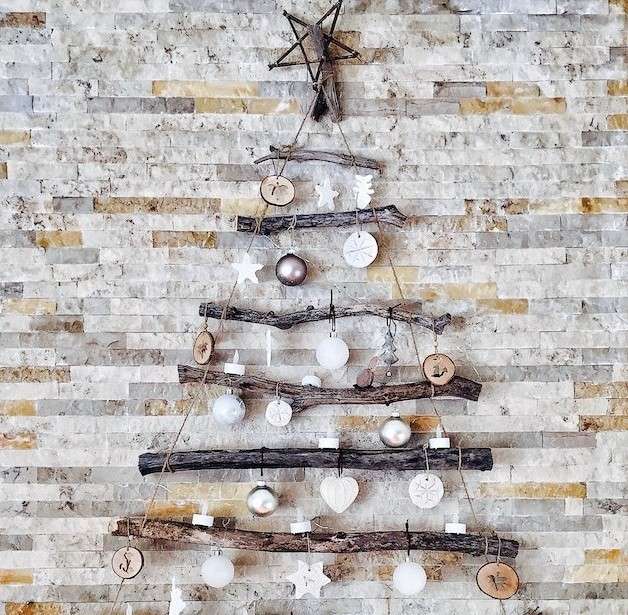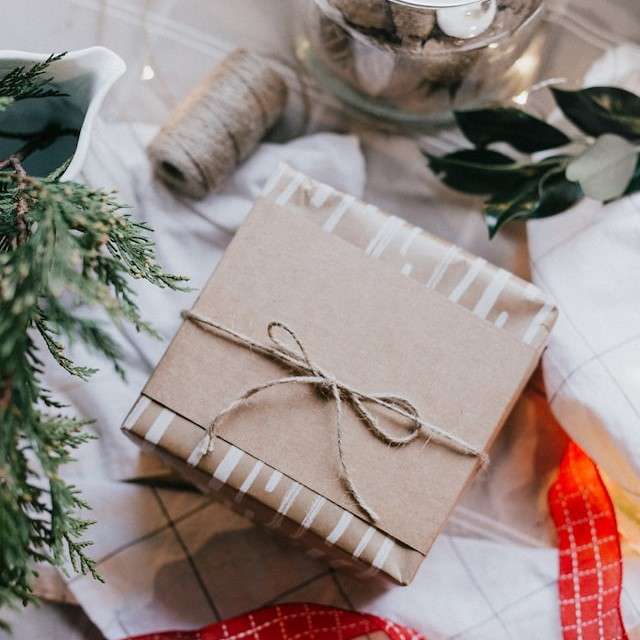From LED Christmas lights to DIY wrapping paper, celebrate the holidays sustainably with these eco-friendly tips.
Ladies and gents, Mariah Carey has officially defrosted. That’s right, the holidays are here, which means inevitable food comas and the subsequent unbuttoning of pants await. You may already be starting to get into the festive, holiday spirit. (Hey, Alexa: play “All I Want for Christmas Is You” on repeat.)
Let your heart — and conscience — be light this holiday season by having yourself a sustainably merry little Christmas.
The environmental impact of the holidays
Before you embark on a gift-shopping excursion, consider the environmental impact of the holiday season.
From gift exchanges and Christmas potlucks to family meals and work parties, we tend to generate a lot of waste during the winter months.
Just take into account Christmas cards alone. Approximately 2.65 billion of them are sold in the U.S. each year — enough to fill a football field ten stories high!
A 2021 study found that the average American throws out about 43 percent more waste during the holidays (which amounts to an average of 29 pounds of trash per week).
What are the biggest sources of holiday waste? Wrapping paper, gift bags, gift boxes, tissue paper, and food waste ranked as the top offenders.
Eco-friendly holiday tips
Worry not, it is possible to reduce your environmental impact while still celebrating your most treasured holiday traditions. From LED lights to DIY wrapping paper, celebrate sustainably with these eco-friendly tips.
1. Choose an eco-friendly Christmas tree
Whether you prefer to put up a real spruce or pine tree, or you opt for an artificial tree, you may be wondering which option is the most sustainable. The latter — which is typically made from polyvinyl chloride, or PVC, a particularly harmful type of plastic — could take hundreds of years to break down when it inevitably makes its way to the landfill. When you take into account the carbon footprint of the production and transportation process, artificial trees are that much more unsustainable.
Granted, many choose to dispose of their real Christmas trees by throwing them out on the curb. However, the carbon footprint of a 6.5-foot artificial tree is more than two times that of a real tree that goes to the landfill.

Now, if you already have an artificial tree, by all means, put it up. If you don’t, opt for a real tree that’s locally grown. If your city doesn’t offer treecycling services, you can replant it in your garden, use it as compost, or chop it for firewood when the holidays are over.
Want to skip purchasing a tree altogether? Check out these DIY Christmas tree alternatives, from photo collage and book trees to wood pallet and ladder trees.
2. Decorate responsibly
From shopping for plastic-free wooden or glass Christmas ornaments to making your own tree decorations out of twine, yarn, pine cones, and whatever else you have lying around your home — it’s easy to get into the sustainable holiday spirit.
For all of your lighting needs, opt for LED bulbs, which can be up to 80 percent more energy efficient than standard bulbs. With the help of a hot glue gun, old coat hangers, twigs, and pinecones, you can even make your own wreath! (Here’s how.)
3. Wrap sustainably
‘Tis the season to upcycle. Help reduce Christmas waste by opting for zero-waste gift wrapping. Decorative fabrics, pillowcases, or linen napkins, newspapers, old sweaters, and reusable bags make the perfect wrapping paper.

If you don’t have anything lying around, you can also shop at a thrift store for DIY wrapping alternatives or opt for buying wrapping paper that’s 100 percent recycled and recyclable.
Oh, and be sure to nix paper card waste by sending out adorably festive e-cards via websites like Blue Mountain and Jacquie Lawson.
4. Eco-friendly gifting
The sustainable gift options run the gamut these days, from products made from biodegradable materials to the plethora of secondhand options that promote a circular economy. Some gifts are easy to source from the secondhand market; handbags, furniture, art, books, and jewelry are all great items that can stand the test of time. Some, like furniture and books, can feel more valuable when they’re visibly antique.
For other items you’ll need to buy new, your best bet? Do your research. Look for brands that showcase certifications such as Fair Trade, OEKO-TEX, GOTS, and more. If a brand doesn’t disclose sources or certifications but makes claims like “sustainably made” or “all-natural,” they may not be living up to their claims.

Another important gift-giving rule: give useful items. This can mean practical products like reusable water bottles. It can also mean listening and taking note of things your giftee will value and use. This can also mean making it yourself: art, food, photos — they all make excellent low-impact gifts, too.
In lieu of tangible gifts, you gift an experience for a memory that will last a lifetime. Plan a vacation, buy tickets to a local concert, a good film, or a sporting event. Gift a day spent at a museum or animal sanctuary — the options are endless.
And, for the hard-to-shop-for on your list, consider making a donation to a nonprofit or cause near and dear to their hearts instead of a token item that may wind up in a landfill.
5. Eat and drink for the planet
Holiday cookies, cakes, cocktails — they’re essential parts of the season. They play a part in your holiday footprint, too. But, as the saying goes, you can have your jellyroll Christmas cake and eat it, too — just be sure to leave out the eggs, butter, milk, and other animal ingredients. Animal agriculture is a leading contributor to climate change. Swapping for a plant-based option is one of the easiest ways to reduce your carbon footprint.

Likewise, your alcohol (or zero-ABV) choices can be a more responsible choice. From wine to whisky, a number of labels are now offering sustainably sourced, certified organic, and low-impact spirits for sipping you’ll feel so good about.
Related on Ethos:
- As Consumers Embrace Secondhand Gifting, ThredUp’s First Upcycled Holiday Collection
- Savory Plant-Based Recipes for a Sustainable Holiday Spread
- 9 Brands Like Reformation to Shop for Sustainable and Feminine Fashion
- Sip Sustainably From These Recycled Drinking Glasses
- The 6 All-Purpose Fair Trade Beauty Products You Need, According to An Expert


